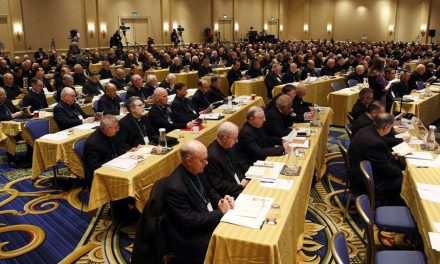Nine years ago I wrote our blog’s commentary on “sin,” which explains official church teachings from the Catechism and the Compendium of the Social Doctrine of the Church. Since then, many contributors have written about sin in a variety of contexts, including Jason King’s reflection on how salvation is prior to sin, David Cloutier’s reflection on sin as division and his further analysis of Twitter as a structure of sin, Conor Kelly’s analysis of parenting and masculinity and structures of sin, Matt Shadle’s analysis of sin in Laudato Si, and the late Beth Haile’s wrote this compelling piece about birth control and sin-talk, among many others.
Without repeating too much from these earlier posts, it is important to note that in the Catholic moral tradition, sin must be evaluated in context, and is always dependent on the subject’s knowledge and degree of moral freedom, as well as the gravity of the act and its consequences. There are many motifs in Scripture that can guide our discernment about sin-talk, including the Good Samaritan parable that Pope Francis employs in the second chapter of Fratelli Tutti. The failure to love God, self, and neighbor can be reflected in many different kinds of actions of various levels of gravity. Our goal in the moral life is to grow in union with God, growing in the virtues, and to do that, we sometimes need to reflect on areas of vice (habits of sin) so that we can learn, change, and grow. Nothing in life is purely “personal,” since our actions always have an impact on our relational selves.
Some questions to guide moral discernment in a time of COVID-19 include:
- Have I done what I can to learn from reliable sources about the virus and how to prevent the spread of infection?
- Do my actions cohere with my deeply held values and what I know to be true from reliable sources?
- Have I taken unnecessary risks that put myself or vulnerable groups at risk for COVID-19 infection?
- Have I knowingly distributed false information about the virus, vaccine, masks, or other safety protocol, including on social media?
- Have I failed to protect myself and others from a deadly virus out of selfishness or because I did not want to be inconvenienced?
- Have I shown a disregard for the common good through my words and/or actions?
- Have I engaged in verbal abuse of frontline workers, teachers, principals, administrators, store clerks, law enforcement, or other community members who asked me to comply with policies to reduce infection to the vulnerable?
- Have I hoarded resources (toilet paper, masks, rapid home tests, PPE) and refused to share with the poor and/or vulnerable out of a desire to only protect myself, my family, or “people like me”?
- Did I fail to use my power and/or privilege to advocate for those more vulnerable than myself in my place of employment or place of worship?
- Did I encourage exploitative management practices at my place of employment or prevent working parents from prioritizing the needs of their dependent children during the pandemic?
- Have I provided false documentation of covid-19 vaccination records, or enabled others to do so by buying/selling such false records?
- Have I expected powerful others, including politicians and pastors, to fix all of the problems I identify, without thinking about my own agency and how I could work to transform some of those problems in some ways myself?
- Have I given enough time and attention to genuine opportunities for self-care?
One could go on, but this gets at some of the big ideas. The point is, as Christians we should be willing to face the truth about our own moral weaknesses and moral blindness, and when the need arises, recognize what is truly a failure to love, repent, and return to the God who loves us and who is inviting us into a relationship of mutual love and solidarity. None of us is perfect, and our liturgy reflects this self-awareness, as we regularly confess in the Confiteor:
I confess to almighty God
and to you, my brothers and sisters,
that I have greatly sinned,
in my thoughts and in my words,
in what I have done and in what I have failed to do,
through my fault, through my fault,
through my most grievous fault;
therefore I ask blessed Mary ever-Virgin,
all the Angels and Saints,
and you, my brothers and sisters,
to pray for me to the Lord our God.
Let’s continue to pray for one another as we move through this difficult time, working in our own way to build up the body of Christ in actions that reflect love, truth, mercy, and justice.




